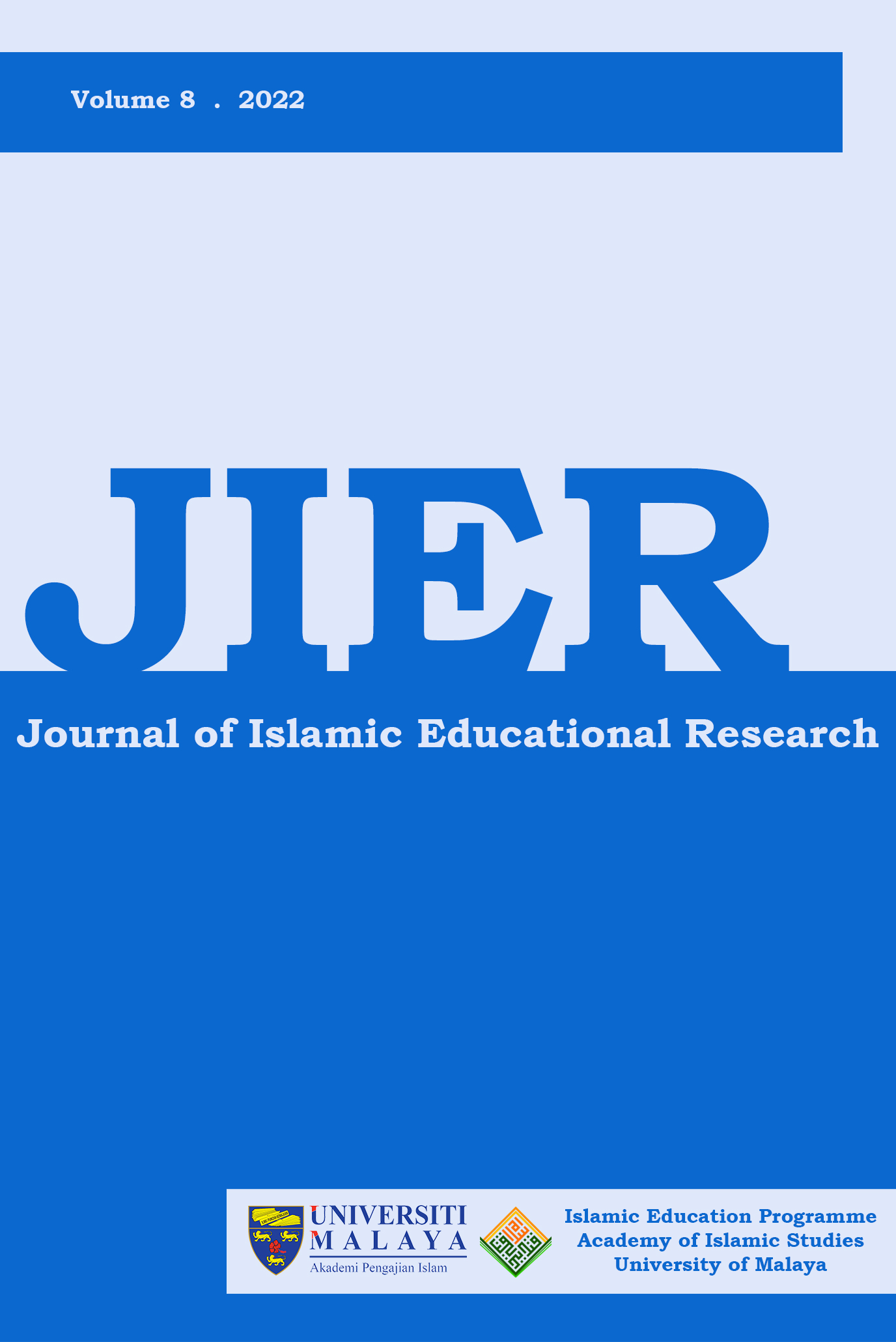Pembelajaran dan Penilaian Menggunakan E-Portfolio: Kajian Terhadap Penerimaan Pelajar Fiqh al-Jinayat dan Fiqh al-Muamalat
Learning and Assessment Using E-Portfolio: A Study on Students Acceptance in the Courses of Fiqh al-Jinayat and Fiqh al-Muamalat
DOI:
https://doi.org/10.22452/jier.vol8no2022.2Keywords:
E-Portfolio, Online Learning, Student-centered Learning, Assessment, FiqhAbstract
The Covid-19 pandemic has forced the world of education to take place virtually or entirely online. This situation demands the adaptation of teaching and learning activities to appropriate and effective methods. This article aims to discuss e-portfolio as a method of student-centered learning and assessment. Its application is discussed based on the authors’ experience in teaching Fiqh al-Jinayat and Fiqh al-Muamalat, both subjects offered at the Bachelor level at the Academy of Islamic Studies, University of Malaya. The study also aims to analyze the acceptance of students of both courses towards e-portfolio assignments. This study employs qualitative approach and data were obtained from students’ reported reflections and feedbacks in their e-portfolios. Data were analyzed thematically, and subsequent validation of findings was made using the method, time, and person triangulation. This study finds that students’ acceptance of e-portfolio assignments as a self-learning method and student-centered assessment method was positive. These findings are in line with the theory and result of previous literature. Thus, it is imperative to expand e-portfolio assignments in higher learning institutions with appropriate adjustments based on the goals and needs of the subjects offered. Its implementation is suitable not only in virtual learning mode but also in blended and hybrid learning mode.
Downloads
Downloads
Published
How to Cite
Issue
Section
License
The published manuscript shall be a copyright of the Islamic Education Programme, Academy of Islamic Studies, University of Malaya, Kuala Lumpur, Malaysia. The published manuscript would not represent the stand or opinion of the Advisory Board, Editorial Board, Co-Editorial Board and the Management Team of Journal of Islamic Educational Research (JIER), or the Islamic Education Programme, Academy of Islamic Studies, University of Malaya.
Note: This is an open access journal which means that all content is freely available without charge to the user or his/her institution. Users are allowed to read, download, copy, distribute, print, search, or link to the full texts of the articles in this journal without asking prior permission from the publisher or the author. This is in accordance with the BOAI definition of open access.


